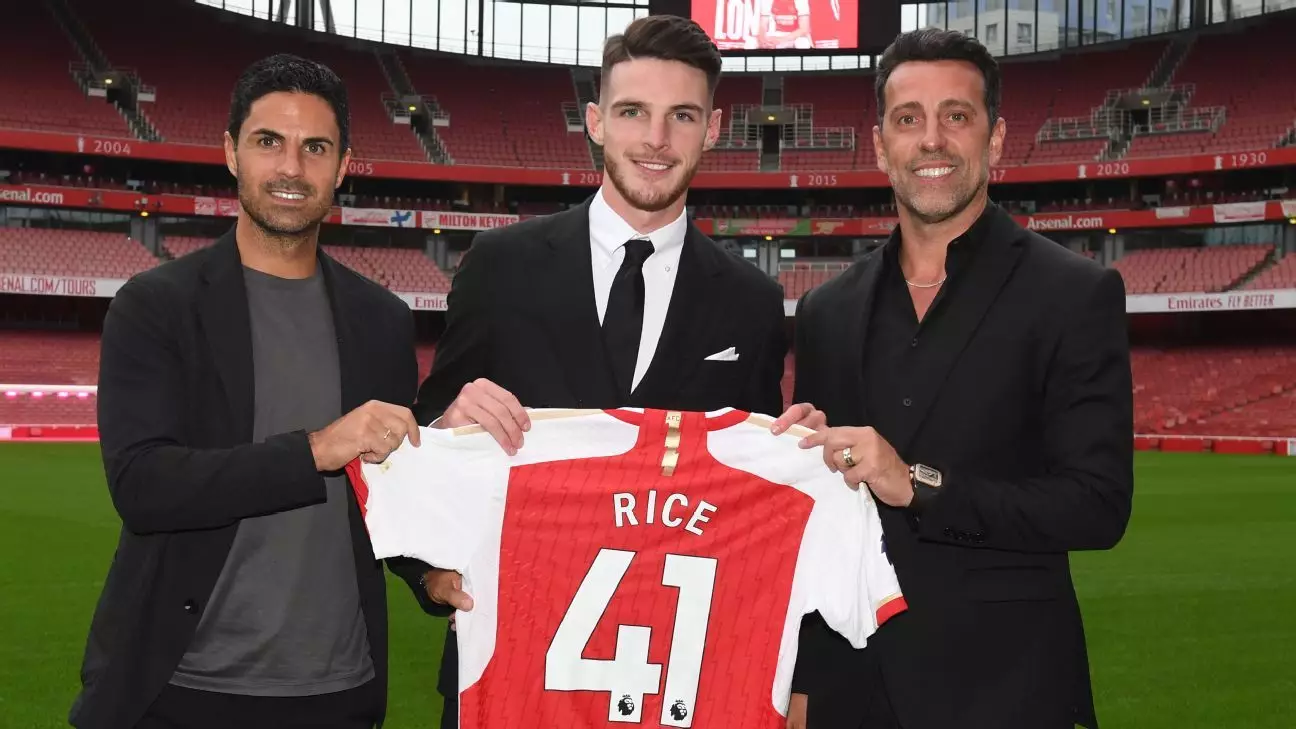The announcement that Mikel Arteta had renewed his contract with Arsenal on September 12 was met with enthusiasm from fans and staff alike. In his remarks, Arteta praised sporting director Edu Gaspar, acknowledging the crucial role Edu played in his own appointment and the direction the club was taking. Their partnership, forged in a period of transformation, seemed poised to guide the Gunners toward renewed glory. However, in a striking twist less than two months later, Arsenal revealed that Edu had resigned, a move that has sent ripples through the club and its supporter base. The abruptness of his departure raises several questions regarding the future direction of Arsenal and the impact of his tenure.
Reports indicate that Edu is set to lead a multiclub project under Nottingham Forest owner Evangelos Marinakis, overseeing clubs including Olympiacos in Greece and Rio Ave in Portugal. This shift is particularly surprising given the context of his ongoing contributions to the North London club, where Edu was pivotal in key strategic decisions and player acquisitions. Having initially joined Arsenal in 2019, Edu’s past as a player in the celebrated “Invincibles” squad lent him a unique perspective as he transitioned into a managerial role. Supporters were initially cautious due to his earlier recruitment decisions, but as results improved under Arteta, confidence in his capabilities grew.
Edu’s role as sporting director, awarded to him in 2022, represented a significant recognition of his contributions, but as is often the case in football, loyalty is tested against lucrative offers and broader opportunities. The revelation of a highly attractive package from Marinakis, described as a substantial financial incentive and a more expansive role than what Arsenal could provide, sealed Edu’s fate. It’s crucial to acknowledge that despite speculation regarding a power struggle within the club, credible sources argue that such narratives are unfounded. Instead, Edu’s exit can be characterized as an unanticipated but mutually respectful decision induced by opportunity rather than conflict.
Edu’s departure from Arsenal been met with dismay, especially considering his integral involvement in reshaping the club’s ethos in the wake of a challenging period that followed Arsène Wenger’s tenure. Arteta and Edu worked closely to establish not just competitive footballing strategies but also to cultivate a healthy club culture, professional standards, and a shared vision aimed at a return to prominence in both domestic and European competitions. With their chemistry being a focal point of Arsenal’s resurgence, the question now is how the loss of Edu will affect ongoing projects and future ambitions.
Despite changes in leadership, the club asserts that the foundational principles guiding their strategy remain unchanged. Internally, management has initiated procedures to transition responsibilities, with Jason Ayto stepping up on an interim basis. While the collective management team—comprising Arteta, managing director Richard Garlick, and others—adapts to this unexpected change, the urgent need for a decisive hiring process for a replacement is paramount. The club recognizes that finding a candidate with the breadth of experience and familiarity with the club’s culture, as possessed by Edu, will be a challenging task.
For Arsenal, the journey ahead seems both uncertain and full of potential. With no immediate panic regarding the upcoming transfer window, the hierarchy appears ready to respond effectively to any emerging needs. Arsenal’s management must balance the urgency of securing a new sporting director with long-term strategic objectives. It is essential to recognize that while change can often disrupt momentum, it can also serve as a catalyst for new ideas and revitalization.
Furthermore, Edu’s resignation coincides with significant maneuvers in various departments, including the ongoing pursuit for a new head coach for the women’s team, a process that remains unaffected by his exit. There’s a palpable sense within the club that the groundwork laid during the past few years can withstand the trials of transitioning leadership roles. However, time will tell if this belief stands up to the impending challenges that come with adapting to life without Edu.
Edu Gaspar’s exit creates a critical juncture for Arsenal. While his leadership helped steer the club back toward relevance, the pursuit of a replacement who echoes his vision and charisma will be pivotal moving forward. As the Gunners look to maintain and build upon the momentum generated during his tenure, what remains vital is the shared commitment from existing leadership to uphold the core values that fueled Arsenal’s resurgence in recent seasons. In a landscape where managerial positions often lead to instability, Arsenal’s capacity to build on their achievements in the wake of this sudden departure will ultimately define their trajectory in the seasons ahead.

